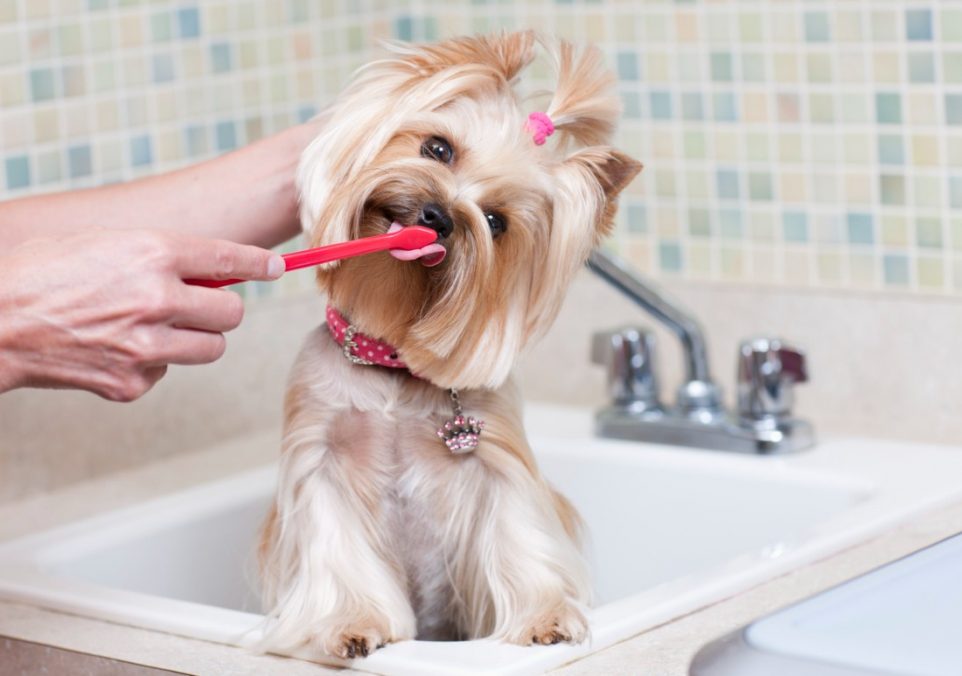Tips for Preventing Bad Breath in Dogs

We all want our furry friends to have the best life possible, and that starts with fresh breath. Unfortunately, our beloved four-legged companions often have bad breath due to various factors, such as poor dental hygiene, diet, and genetics. It can be a sign of a severe health issue, such as gum infection or organ failure, so it’s essential to address it.
This post will share some tips for preventing bad breath in dogs. We’ll discuss everything from dental hygiene to diet, treats, and supplements. We’ll also advise you on how to spot a severe health issue so you can take action and keep your pup happy and healthy.
What is Causing Bad Breath in Dogs?
In most cases, bad breath in dogs is caused by the same factors that cause halitosis in humans, such as plaque and tartar build-up on the teeth, bacteria imbalances, dry mouth, and dental disease. However, in rare cases, bad breath can also point to more severe health issues such as diabetes or organ failure.
A few signs indicating your pup may have oral health issues include tartar build-up on the teeth and gums, discoloration of the teeth or gums, sensitivity around the mouth when you touch them or when eating, chipped or broken teeth, and persistent stinky breath. If your pup displays any of these signs, it is essential to have them see a veterinarian as soon as possible for an examination and oral health care routine.
Regular Oral Hygiene
Just like humans, dogs need regular teeth brushing to maintain good oral hygiene and prevent bad breath from occurring. Brushing your dog’s teeth at least three times a week is recommended for optimal dental health; however, anytime more than once a week is beneficial! When brushing, be sure to use a canine-specific toothbrush with soft bristles and toothpaste specifically made for dogs, which you can find at any pet store or online retailer. Start by introducing your dog to toothpaste on their paw and allowing them to taste it before getting used to the sensation of having their teeth brushed. We also recommend using dental chews for dogs to keep their teeth healthy and their breath fresh!
In addition to at-home brushing, we also recommend taking your pup for professional cleanings every six months or so, though this number will depend on the individual needs of each pup based on their lifestyle, diet, age, and breed. A professional cleaning from a veterinarian should include physical and non-invasively exams through dental X-rays so you can identify any underlying issues early on for proper treatment.
Diet and Treats
Unfortunately, many human foods we enjoy can wreak havoc on our pup’s dental health; this is especially true with harder foods such as nuts, corn kernels, etc., which can cause damage to teeth or may become lodged in the mouth. When your pup shows signs of bad breath, consider giving them a standard pet diet and incorporating dog dental treats into their snack routine.
Conclusion
Bad breath in dogs can be prevented and managed with a little extra effort and care. Following the tips in this article, you can know that your pup’s teeth and breath will stay in tip-top shape. Brushing your pup’s teeth and providing them with a balanced and healthy diet will go a long way in keeping bad breath away. Providing your pup with professional dental care is important to make sure you are spotting and addressing any underlying health issues. With these tips, you’ll both be smiling in no time!
Your Pet’s Best Interest, Always
At Pet Institute, we take pet care seriously. We're dedicated to transparency, impartiality, and the well-being of your pets in every article, review, and recommendation we provide. Our unwavering commitment to these principles ensures that you, our valued reader, always receive reliable and unbiased information. Let us be your trusted guide in the world of pet care and companionship.